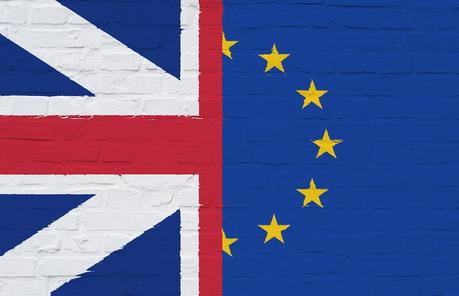Writing in a post-Brexit world, the only thing that is truly clear is that the ramifications of the decision of leave the European Union won’t be fully apparent for some time.
In the short term, we’re seeing some economic uncertainty as the value of the pound takes a dive and pages of editorial devoted to the reaction of business and political leaders.
Gartner has already predicted IT spending in the UK will decline by five percentage points during 2016 and 2017 leading to a drop in investment.
The truth is no one can say definitively at this stage what it all means but when it comes to your business plans for digital transformation, there are some key areas to think about.

Data
Some pertinent questions are already being asked about what implications we can expect on data governance.The EU is in the process of working on the EU General Data Protection Regulation (GDPR), a new framework which aims to strengthen data protection for individuals within the European Union (EU) and govern the export of personal data outside the EU.
With the UK now intending to leave the EU around the same time the GDPR is due for implementation in 2018, it has yet to be determined whether the UK will still apply the GDPR or negotiate a separate agreement.
Either way, data governance and compliance with laws currently in place is crucial for the protection of your business and customers and should continue to be a priority.
Digital Skills
The lack of available digital skills in the UK has long been recognised as an issue for UK businesses.
A 2015 survey found that over a fifth of startup talent in the UK came from other EU countries and, indeed, in recent years workers on European visas have become increasingly important in a range of industries.
Digital skills are a particular issue. Last year a survey by the British Chamber of Commerce workforce found that when hiring, two-thirds of businesses rated tech knowledge as a key attribute in potential recruits but a quarter of these admitted to digital skills shortages within their business.
If we’re looking at potentially restricted movement of key talent between the UK and the EU, there’s a risk of the UK lagging behind in growth and innovation.
With the existing digital skills concerns, the time is already overdue for you to review your digital abilities in-house and invest in vital retraining and education in your teams to bridge any gaps.
Trade and the EU
Brexit also looks set to implicate what benefits or involvement the UK can gain from the EU’s Digital Single Market (DSM).
The DSM aims to remove common obstacles to unlocking online opportunities and work towards ‘ensuring the free movement of goods, persons, services and capital and that citizens and businesses can seamlessly and fairly access online goods and services’.
Leaving the EU will leave the UK outside of its protective measures such as unified data regulation and prevent its application to important funding streams, e.g. the €2.8 billion Digital Agenda for Europe fund.
Uncertainty is the New Reality
The main voices in the UK tech sector came out strongly in favour of remaining in the EU but shock at the result has been replaced by determined optimism.
An open letter sent to the Evening Standard signed by more than 50 technology leaders, including Baroness Martha Lane-Fox, urged British businesses to look forward, not back, stating:
“The real risk today is that the warnings of economic decline and predictions of a diminished role for Britain in the world become self-fulfilling, which would be a tragedy for the country, and would have a deeply negative impact on people’s jobs and livelihoods.”
For the next two years at least, the reality is we are in for a fluid period with delayed decision making likely.
While the enormous task of divining the details of Brexit will take the next couple of years to unravel, the overall mission statement of your digital transformation remains unchanged - to get your business fit for purpose in an increasingly-digital world.
(This article first appeared on Manchester Digital).


